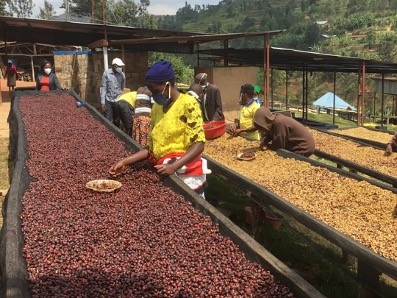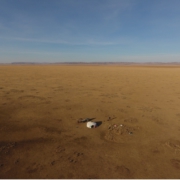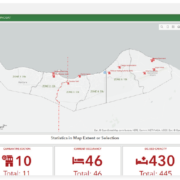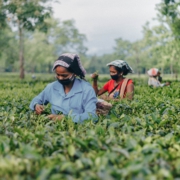IPP ACCORD Project Endorsed by Farmers in Latest Survey Results
Original post here.

The success of the ACCORD project relies critically on the enthusiastic adoption of the service by the farmers themselves. Even the smartest technology is ultimately useless if the users themselves don’t embrace it.
A critical part of measuring the success and the impact of the ACCORD technology and service has therefore been to keep a regular check on farmer adoption of the technology, the impact on their farming practices and their overall satisfaction with the service they are receiving.

We do that primarily through a quarterly survey of a sample of circa 160 farmers (male and female) drawn from across the participating cooperatives in both Kenya and Rwanda. We also ensure we have a representative sample of female farmers so that we can track adoption and impact by gender.
The surveys have been carried out throughout the programme, from the point farmers began receiving SMS messages from the ACCORD platform. Over time the project team has been able to track farmer attitudes and satisfaction, as well as the impact the technology is having on their farms – and capturing some deeper insights in their own words.
The results have been very positive from the outset. From the start feedback received has suggested that the application of advanced data-science driven technology can have an immediate and positive impact on meeting farmers’ needs, so long as it is delivered in an accessible and practical way.
June survey shows very positive feedback and steady progress
The latest survey has generated our best set of results to date – and given that we are close to reaching our target of 50,000 mapped fields and around the same number of participating farmers (40,000+ receiving the service right now) that is indeed most encouraging.
So, what have we found in the latest results? We look at several measures of adoption and satisfaction, and here’s the topline for the one’s we look at most closely:
- 92.8% of farmers reported taking the recommended action in June 2020, compared with 91% a year ago.
- 98.8% of farmers reported a positive change in their farming practices, in June 2020 as a result of accessing the service, compared with 92% a year ago.
- 97.6% of farmers reported satisfaction with the service in June 2020, compared with 93% a year ago.
- 96% of farmers reported a positive change in the health of their crop in June 2020, compared with 91% a year ago

Farmers also reported to have made some decisions that led to savings. 60% were able to manage farm labour and logistics well, improve crop management practices, and reduced operation costs. 29% indicated that they were able to apply the right amount of agro-inputs in the right way, avoiding wastage, and 12% managed to buy more effective type of agro-inputs (which also depends on the farmers’ availability of funds).

Despite these very positive results, we do remind ourselves that good as the feedback from farmers is, the results on the ground in terms of improved farming and better yields is what ultimately counts. Therefore, we are far from complacent and the Covid19 pandemic is a timely reminder that there are many environmental factors that challenge smallholder farmer resilience and sustainability.
Challenges remain on the ground
Beyond the surveys we conduct occasional farmer focus groups so that we can delve deeper into the challenges they face, and the factors that affect their ability to act on the advice they receive from the service.
Most farmers cite challenges in having access to inputs at the time they need them most, or the right type, or that they can’t afford them at that point in time. Similarly, access to labour to carry out the work can be a problem, one that has been exacerbated by the impact of lockdown on the movement of labour in rural areas during the current pandemic. These are challenges that technology alone cannot solve. There must also be market and logistical solutions that enable farmers to act effectively, when they know what needs to be done, based on ACCORD alerts and advice.
It is our fervent belief therefore that ACCORD technology is an enabler not a full solution in itself. Knowledge is power they say – and rightly so – but only if that knowledge can be acted upon effectively and, as climate change constantly reminds us, in a timely manner.
International Partnership Programme
The International Partnership Programme (IPP) is a five-year, £30 million-per-year initiative run by the UK Space Agency. It focuses on using the UK space sector’s research and innovation strengths to deliver sustainable economic or societal benefit to developing economies around the world. IPP is part of, and is funded from, the Department for Business, Energy and Industrial Strategy’s Global Challenges Research Fund (GCRF). GCRF is a £1.5 billion fund announced by the UK Government which supports cutting-edge research and innovation on global issues affecting developing countries.










